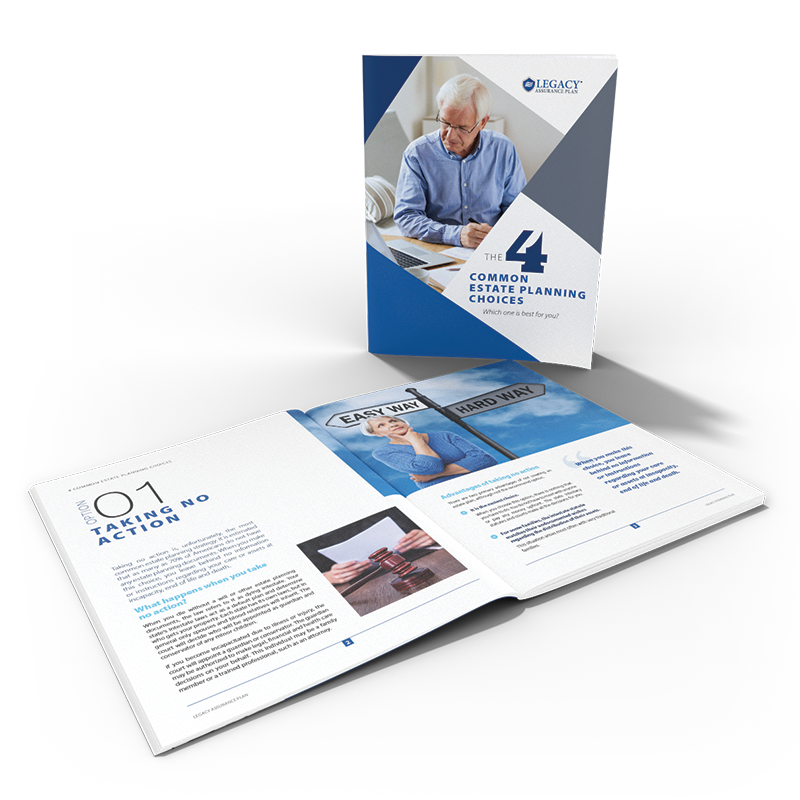In general, there are four basic planning choices. Each option has advantages and disadvantages. However, the best choice for almost everyone is to create a comprehensive estate plan.
Take no action
Taking no action to create a plan is an all-too-common choice. It is estimated that as many as 70% of Americans do not have any estate planning documents. When you make this choice, you leave behind no information or instructions regarding your care or assets at incapacity, end-of-life and death. You have no control, and state statutory defaults provide the answers you failed to give.
Creating only a will
When you die with only a will, your estate must go through probate. Probate is the court process that validates the will and oversees the estate's distribution. A will only takes effect after your death and provides no authority to act in response to events that take place during
your lifetime.
If you become incapacitated with only a will, your loved ones will have to petition the court to appoint a guardian to make financial and medical decisions on your behalf. Usually, a family member is chosen, but sometimes the court appoints a professional to act as your guardian.
Creating a will and powers of attorney
When your plan includes a will and powers of attorney, your estate will be probated and your property distributed based on the directions in your will. If you become incapacitated due to illness or injury, the agent you selected in your powers of attorney will be authorized to make medical and financial decisions on your behalf.
Creating a comprehensive estate plan
A comprehensive estate plan includes documents that address the three major planning issues: incapacity, end-of life care and asset management and distribution at death. Examples of legal documents included in this type of plan are a pour-over will, revocable living trust, powers of
attorney and an advance directive.
If you create a comprehensive estate plan, your wishes for incapacity, end-of life care and property distribution and management will be known and documented. Your estate plan keeps you in control of how your assets are managed and decisions made if you become incapacitated.



